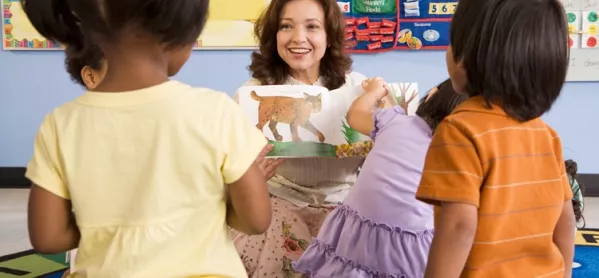Children with special educational needs and disabilities are being left out of the discussion on how to improve literacy, according to a new report published today.
The report, “Through the Looking Glass”, from the Driver Youth Trust, a literacy charity specialising in dyslexia, says the focus on phonics has shut down discussion on alternatives for those children for whom phonics proves ineffective.
“Phonics does not work for every learner,” the report states. “This needs to be accepted and alternative strategies for accessing literacy addressed, recognising that failure to pass a phonics test at age 5 or 6 does not mean a learner is destined for failure.”
The phonics test is taken by pupils at the end of Year 1. Children must read 40 words, including 20 non-words, aloud to their teacher, who marks the test. To reach the phonics standard, children must read 32 words correctly. In 2016, just 42 per cent of children with SEND reached the phonics standard, compared with 86 per cent of children without SEND.
The report adds that the term “universal provision” too often means provision for those children who can catch up - and ignores those with SEND, or sidelines them as the concern of specialist staff.
‘What about the children who don’t learn to read?’
“In the looking-glass world, we see oversimplified messages that suggest all children can learn to read if they just receive a good quality education, are read to by their parents and develop a love for reading,” Christopher Rossiter, author of the report and director of trust, says.
“Yet the evidence is clear - some children continue to fail to learn to read, write and spell to the expected standard. These children go on to be the 6 million adults in the UK who are functionally illiterate, which means they can’t read a tin of baked beans or the instructions on a packet of pills.
“These children need to be part of the agenda. We need policies and research that lead the way for children who face the greatest disadvantage; that is being ignored.”
“Through the Looking Glass” examines the focus of 21 strategies, policies and initiatives on literacy from organisations including Ofsted, the Department for Education and Save the Children.
It says that, while all the strategies had at heart “a commendable desire to improve literacy”, there was a confusion over which children are the true focus of literacy improvement, a limited discussion of SEND and a supposition that family background is the reason for a failure to progress rather than the school system.
“‘Universal’ needs to mean for everyone, it needs to be inclusive, and only then will we see a change in both what we understand to be literacy and in the achievements of our children and young people,” the report concludes.
A Department for Education spokesperson said: “Every child, regardless of background, deserves the opportunity to go as far as their talents will take them and we know that having the right support from those around them is vital to a child’s achievements.
“That’s why we have invested over £19 million to develop the capacity, skills and knowledge of the special educational needs and disability workforce, as well as a £6 million fund specifically for the training of dyslexia teachers.
“We’ve also strengthened the curriculum to focus on developing pupils’ reading and writing skills, and we are teaching phonics to help children acquire the basic building blocks of reading.
“The proportion of six-year-olds now reaching the expected standard in the phonics screening check has risen from 58 per cent in 2012 to 81 per cent in 2016.”
The 21 documents analysed were published by: Ofsted, the All-Party Parliamentary Group for Education, the Department for Education, the Parliamentary Office of Science and Technology, the Sutton Trust, the Education Policy Institute, the Education Foundation, the National Literacy Forum, Beanstalk, the World Literacy Foundation, the National Literacy Trust and Save the Children.
Want to keep up with the latest education news and opinion? Follow TES on Twitter and like TES on Facebook




